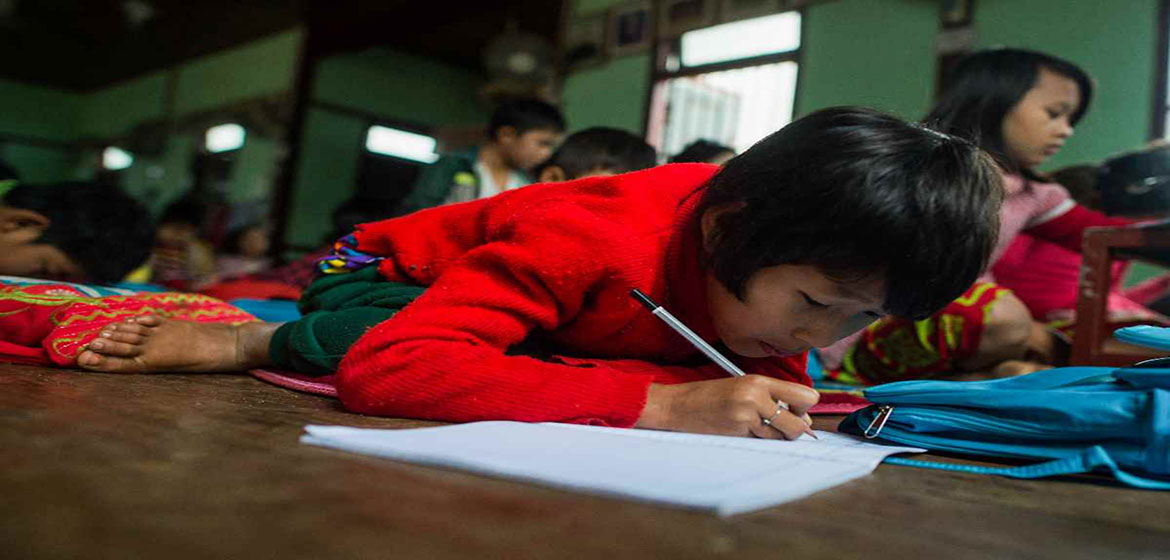By Jason Thomas
Despite its best efforts to reach the United Nations’ (UN) Sustainable Development Goals (SDGs), a report by the United Nations Economic and Social Commission for Asia and the Pacific (ESCAP) released on Monday stated that on its current trajectory, Asia Pacific will not achieve any of the 17 SDGs by its 2030 target.
For more than half of the SDGs, progress has stagnated or heading in the wrong direction. The situation is actually deteriorating when it comes to providing clean water and sanitation (SDG 6), ensuring decent work and economic growth (SDG 8) and supporting sustainable consumption and production (SDG 12).
A bright spot in the Asia Pacific SDG Progress Report 2019 is that there are six goals where every subregion is making progress; no poverty (SDG 1), good health and well-being (SDG 3), quality education (SDG 4), affordable and clean energy (SDG 7), reduced inequalities (SDG 10) and partnerships for the goals (SDG 17).
Yet even where good progress has been made, it is probably too late to meet the goals set for 2030.

Source: United Nations Economic and Social Commission for Asia and the Pacific (ESCAP)
ASEAN highlights
While affordable and clean energy (SDG 7) and industry, innovation and infrastructure (SDG 9), many targets within these goals will not be achieved if the pace of development is not accelerated, notably for renewable energy (7.2).
ASEAN has moved backwards on decent work and economic growth (SDG 8), climate action (SDG 13), and peace, justice and strong institutions (SDG 16), and areas requiring immediate action to reverse trends including a number of other social and environmental indicators.
However, is a big challenge in judging each region’s progress accurately as there are data gaps in two thirds of the global SDG indicators. Nearly one-quarter of all SDG targets lack evidence related to the environment, forcing regions to make greater use of alternative data sources to complement traditional sources such as surveys and to paint a more accurate picture of progress towards the SDGs.
The findings from the report are hardly surprising.
In its SDG Index and Dashboards Report 2018 released last July, German NGO Bertelsmann Stiftung and the UN’s Sustainable Development Solutions Network said that for the first time, they were able to show that no country is on track to achieve all the SDG goals by 2030.
Even the top three countries in the index – Sweden, Denmark, and Finland – still have considerable work to do in order to achieve goals such as sustainable consumption and production (SDG 12) and climate action (SDG 13).
UN Secretary-General António Guterres used his “State of the World” address in January to as one of the key challenges facing the world, insisting that “we are losing the race” to manage it.
“Climate change is running faster than we are,” he said, highlighting that even though the reality was “proving to be worse than what science has foreseen” as the world experiences ever-warmer temperatures, political will to do something about it was “slowing down”.
Why the SDGs?
The SDGs were agreed upon by 193 world leaders at the United Nations Sustainable Development Summit in September 2015 as a continuation of the Millennium Development Goals (MDGs). The MDG’s ranged from halving extreme poverty rates to halting the spread of HIV/AIDS and providing universal primary education, all by the target date of 2015.
Recognising the wide range of inter-linked challenges that exist in today’s world and the demand for a wide range of issues to be covered, the SDGs were created to address the interconnected elements of sustainable development: economic growth, social inclusion and environmental protection. The MDGs focused primarily on the social agenda.
But apart from the lack of data and decrease in political will as noted by Guterres, the complexity of the SDGs – which has 169 targets in contrast to the MDG’s 21 targets – also adds to the difficulties countries are facing in meeting these goals.
As the SDG Index and Dashboards Report 2018 pointed out, achieving the SDGs will require a deep transformation of education systems, healthcare, energy use, land use, urban planning, and deployment of information technologies. These transformations, though, require strong political will working in partnership with business and civil society.
Strengthening partnerships (SDG 17) and the exchange of information is essential to ensure that ASEAN and the other Asia Pacific sub-regions have the means to finance, target and implement policy solutions. Fail to do so, and these countries will jeopardise the achievements of all the other goals.
Source:
Related to SDG 17: Partnership for the goals



